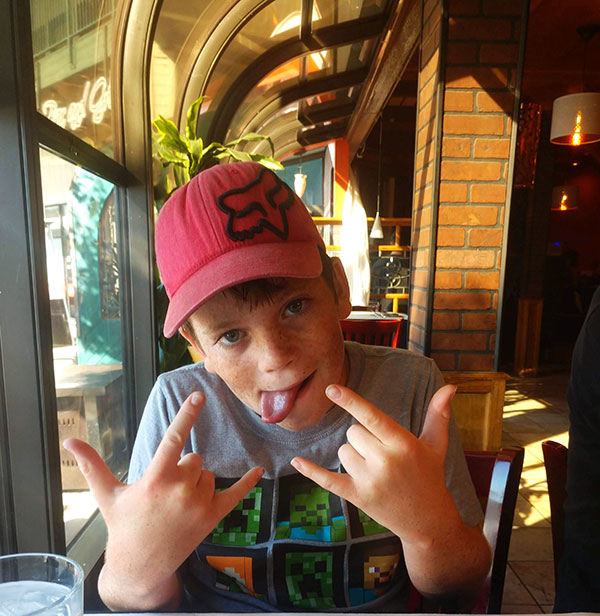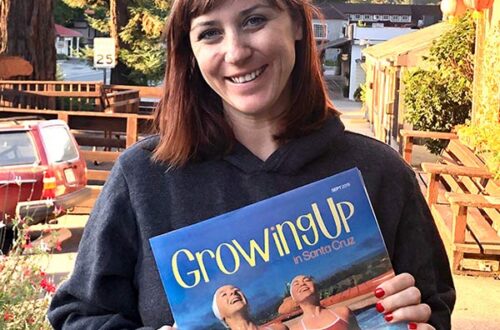
How to Help Your Child with ADHD in School
I watched my son, Luke–who was struggling with ADHD– in mainstream education for six years before finally pulling the plug on the whole operation and vowing to search for a better, alternative solution for him. Luke was a round peg trying to fit into a square hole, the child left behind, the kid falling through the cracks. But not anymore. When we left his Santa Cruz city school after his last day of 5th grade still unsure where he would end up during this scholastic year, I knew we were in for an uphill battle.
THE 6-YEAR BATTLE
We first learned of his condition from a Stanford research study of 4- to 5-year-olds who had extensive stays in the NICU as babies and developed ADHD later in life. I learned during the pandemic, however, that Luke has raging anxiety with some autistic qualities that I noticed when he was younger but didn’t recognize fully.
Luke’s kindergarten teacher pulled me aside one day and confirmed my hunch, suggesting he get evaluated for ADHD. Luke’s pediatrician, after spending 30 minutes witnessing Luke climbing all over the walls, literally, asked how I wanted to proceed in Luke’s evaluation. “There are three options that we have here,” he said.. “We can do nothing. I can write a letter to his school. Or we can provide medication, although he’s very young.”
After I agreed with the doctor that medicating my 5-year-old didn’t feel good to me, a letter requesting special accommodations was written to his school. The letter made its way up the chain of command, and we closed out kindergarten feeling pretty good.
I decided to volunteer in Luke’s first-grade classroom, where I witnessed his peers merely “tolerating” him and his exuberant energy. It was very sad. Near the end of that school year, his teacher pulled me aside to tell me that she was going to have to hold Luke back. In first grade?! “But I’d love to have him in my class again,” she said. When I asked her about the letter, her reply was, “What letter?”
Broken-hearted, I went home and called my mom. “There must be something we can do!” she retorted. That’s what started our intense search into what rights parents have when it comes to special education and their children.
We got Luke an IEP (Individualized Education Program) evaluation by the skin of our teeth that year. Quite literally it was accepted the last week of his school year and put into effect during second grade.
Nothing cataclysmic happened that year, although he did run his mouth, which prompted a counselor to reach out to me. The IEP was in effect, and it appeared to be helping him.
Luke’s third grade year was a doozy. Not only was it leading into 2020 – and we all know what happened in the spring of that year! – but prior to the pandemic his third-grade teacher casually responded to my question about Luke being at risk of not moving on to fourth-grade with, “We can’t legally hold him back.” That was also right before she pulled me aside to suggest that I put him on medication. “I’ve seen hundreds of kids come through my classroom, none of them would benefit from medication as much as Luke.”
A Distance Learning Was a Positive
My chance to see the silver lining in all of Luke’s academic turmoil, came during the pandemic. To my surprise we started off on our distance learning journey strong and steady, wrapping up his third grade year having completed nearly 100% of all his schoolwork. We eased into fourth grade confident that we could tackle what lies ahead, unaware that the school systems spent their 2020 summers trying to “fix” the disarray and glitches of distance learning. Somehow in doing this, they thought that students with IEPs needed more work and more Zooms, which was quite the contrary.
In fact, sometimes his Resource Specialist Program teacher and his regular teacher would overlap Zoom sessions. It was a mess and Luke got so overwhelmed and riddled with anxiety, that he would make himself sick. When it happened twice one week over two totally unrelated things, we decided to take him to a child psychologist, who confirmed that he met the qualifications to receive Applied Behavior Analysis (ABA) services and was slightly on the autism spectrum (they call it a spectrum for a reason!).
How did this mother get things on track? See Part Two in our Special Abilities page in December.







One Comment
Lisset Orozco
Hey Brad
Thanks for sharing about your own, and your son experienc navigating ADHD
I do have my self an amazing, hipersensitive and artistic ADD daughter and you know what?
I feel the need to share with you a reading that has been helping me to understand, not only my own daughter but to many kids I have the plasure to hangout with as the Spanish Nature Club teacher.
The autor of this book is full of wisdom and hope, for our kids and ourselfs as navigating the dificult task of parenting in this complex sociaty and system that is not Child Needs Centered … Give a try, google Gabor Mate name and you will see he is a worldwide autority on childrens development, adhd, trauma, etc.
You have my email, let me know if you want to talk about, I will be more than hapy to share my expirience with you.
Book
“Scattered Minds” by Gabor Mate